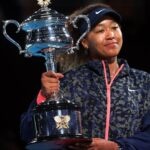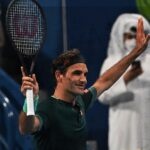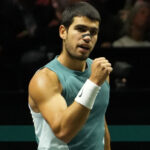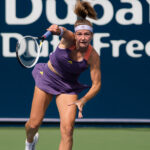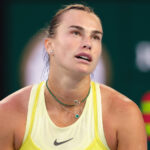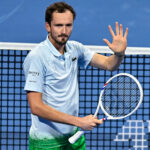The ATP gap after the Big 3, and who can break through it? – Match Points #23
The Match Points panel is back to discuss some of the key talking points following the Australian Open. In episode #23, Marion Bartoli, Ben Rothenberg, and Simon Cambers join host Josh Cohen to debate the gap between the Big 3 and the rest of the ATP Tour.
Novak Djokovic looked vulnerable for a while at this year’s Australian Open, but he quickly restored order to the tournament and eventually lifted the trophy for the ninth time at Melbourne Park. Although Stefanos Tsitsipas did well to upset Rafael Nadal in a five-set semi-final, it was an otherwise another Grand Slam in which the Big 3 — Djokovic especially — exerted its dominance over the rest of the ATP Tour.
In Match Points #23, our esteemed panel discusses the gap between the Big 3 and the rest of the tour while also making predictions for the next breakthrough slam champion.
Are Medvedev and Tsitsipas close?
Dominic Thiem won the 2020 US Open, but he got a major assist from Djokovic when the world No 1 was defaulted from his fourth-round match against Pablo Carreno Busta for accidentally hitting lineswoman with a ball after blasting it in frustration. There is little argument that Djokovic would have eventually captured the title had it not been for that incident. Keep in mind that neither Rafael Nadal nor Roger Federer played in the tournament.
When a Grand Slam is fully loaded with Djokovic, Nadal, and Federer, does the rest of the tour have any chance? Daniil Medvedev has now advanced to two slam finals, but he came up short against Nadal at the 2019 US Open and came up a lot shorter against Djokovic earlier this month in Melbourne. Tsitsipas has reached major semi-finals on three occasions but is 0-3 at that stage.
The general consensus is that even though the gap is narrowing, but the next generation
“I think it’s on two levels: in a general way it has closed a little bit because Tsitsipas is getting to semis, Medvedev is making finals, Zverev made a final, Thiem won one last year. They’re getting there, but they’re still not taking over the game. It’s still Djokovic and Nadal winning the slams. More and more these days, the game is measured by who’s winning the Grand Slams.”
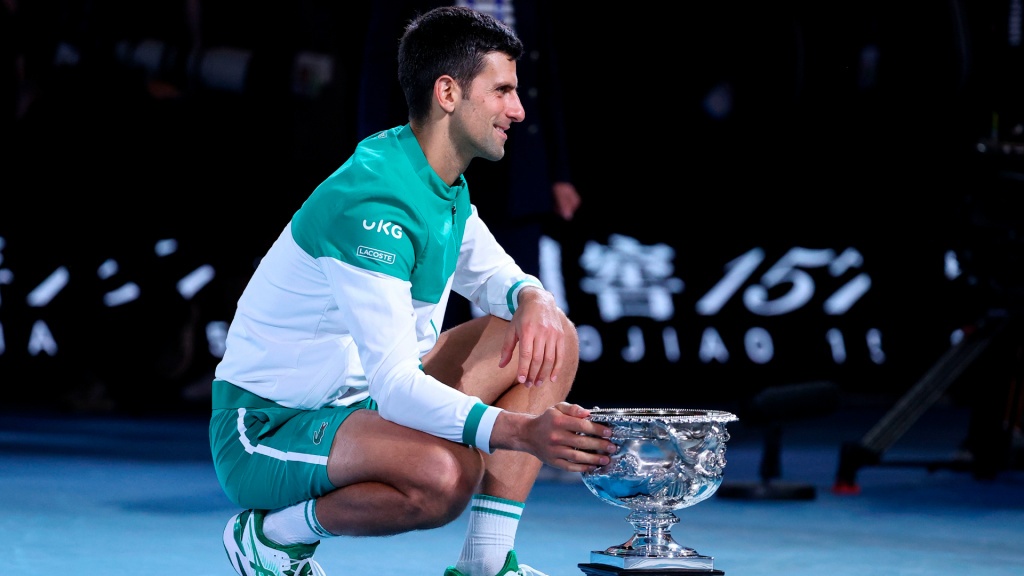
For Rothenberg, his answer was always going to come down to what happened in last Sunday’s final between
“Djokovic was very much announcing, ‘You’re not close, Daniil!’ Dominic Thiem only won that Grand Slam because Novak hit a ball at some lady’s throat. We’ve just gotten message after message that they’re not all that close…. Medvedev was as comprehensive as you can be in terms setting up a resume that you are ready to win a Grand Slam, and then he comes out and plays that bad in the final — it takes a lot of air out of it.”
Bartoli concurs that at slams, the gap is still obvious.
“(It’s closed) by just a tiny bit. Medvedev was able to beat Djokovic in two sets at last year’s London championship, but [the Big 3] only care about the Grand Slams. For Novak, Rafa, and Roger, it’s just about how many Grand Slams they can get…. For the young guns it’s going to be so hard just to win one because they will have to beat [at least two of the Big 3]. The five-setters, the physical part, the mental part, I think they are not quite there yet.”
Who’s got next?
Thiem achieved his breakthrough at the 2020 US Open, but that was amidst unusual circumstances and he is already 27 years old — not exactly the same generation as Tsitsipas (22) and Zverev (23) while at least being close to Medvedev (25). A Grand Slam triumph by a younger player in a slam in which the entire Big 3 participated would surely signal more of a seismic shift than what happened in New York last year.
Cambers’ pick for the next breakthrough champion was is a safe choice, although he hesitated.
“I really want to say (Denis) Shapovalov, but he’s a way off it yet. I’ll say Medvedev — US Open.”
Bartoli couldn’t quite decide on just one.
“I think Medvedev on a fast surface and Thiem on clay.”
Rothenberg went with a more unexpected name.
“Sinner,” he stated — with how much seriousness is unclear — before getting quizzical looks from the rest of the panel. “Jannik Sinner. He’ll just win them all,” Rothenberg joked. “I think he’s wonderful.”
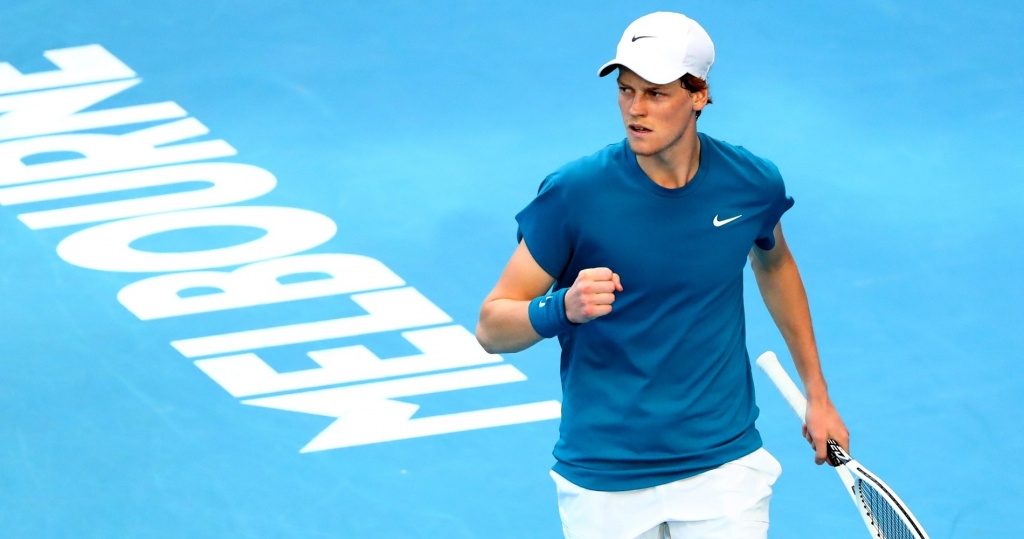
Should injuries be public before matches?
Bartoli, a former Wimbledon champion, argued that players should not have to disclose their physical state prior to matches.
“As a player you don’t want to give away anything to your opponent, obviously,” Bartoli said. “So whatever is being reported is not going to be the truth. I don’t understand why we need to say, ‘I have this sort of injury.’ Let’s just keep it secret and that’s it.”
Cohen pointed out that for gambling purposes, it would be important
“There is an integrity issue about injury disclosure,” Rothenberg agreed. “Inside information about someone being hurt or not hurt is a big factor in dubious betting things. You don’t want that becoming an even bigger market, for black-market information and reports coming from the training room about who’s got tape where and who’s feeling what. That would really intensify if there was more of an official blackout on health information…. If you’re playing with a sprained ankle torn abdominal muscle, it’s sort of relevant to the story of the match. If it’s something that’s going to affect performance, it’s something that the public is used to getting in sports and I don’t see a reason to eliminate that.”
Cambers agreed. But in addition to not being forced to disclose injury information, players also shouldn’t volunteer it if they don’t want to be asked about it by the media. That, Cambers claimed, was the problem with what Djokovic did at the Australian Open. The Serb said in an on-court interview that he had a muscle tear, but in the press room he backtracked and did not want to talk about it.
“I don’t think there’s any reason for a player to talk about an injury before a match, Cambers explained. “You don’t want to give away anything to your opponent — I absolutely agree with Marion on that. The problem is what Djokovic did by saying on court that it was a muscle tear. It just led to a difficult situation. Fine, he doesn’t have to talk about. But don’t make a big deal about it on the court then.”
